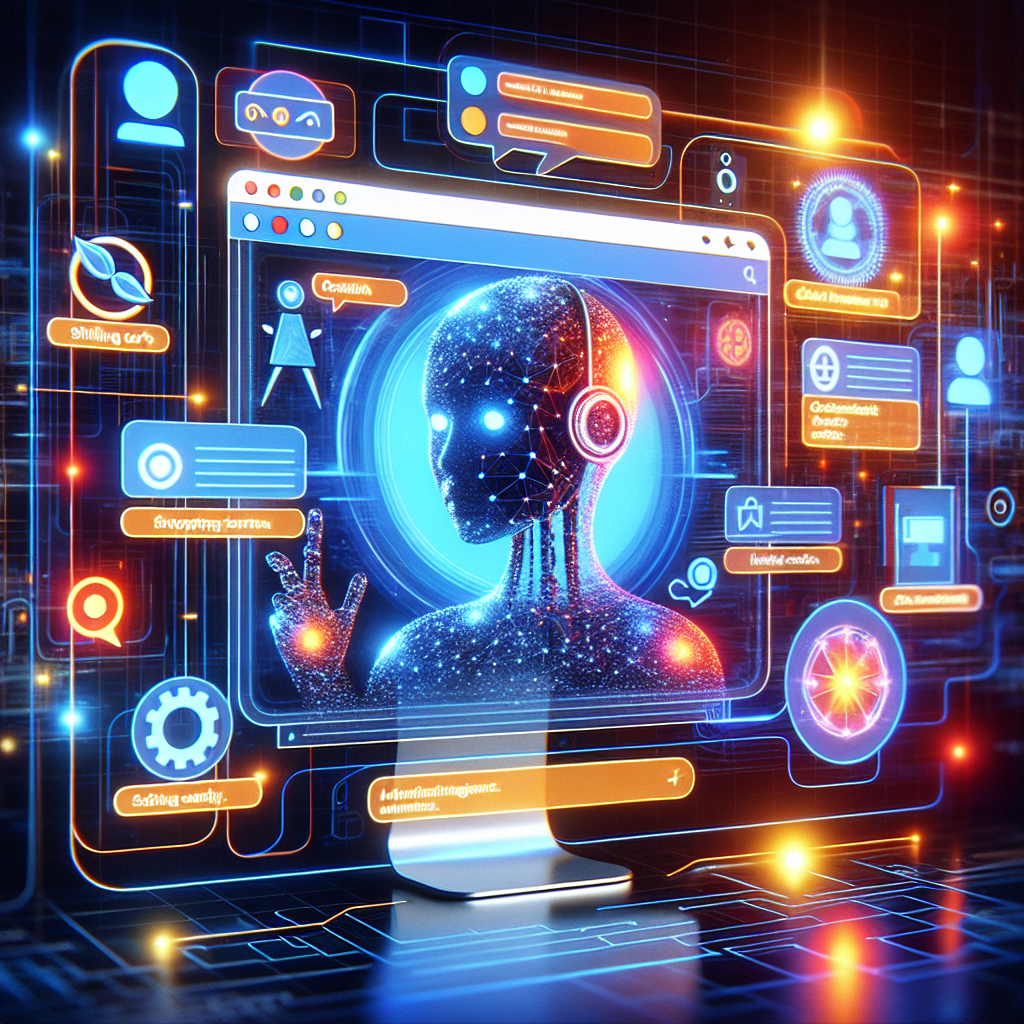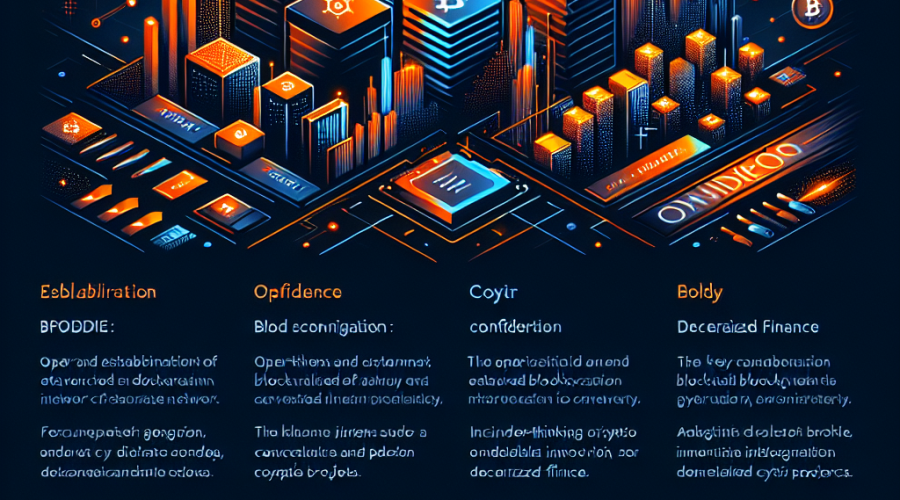OpenAI has once again positioned itself at the forefront of artificial intelligence innovation with the unveiling of Atlas, its brand-new AI-powered browser. As the first web browser of its kind, Atlas blends traditional web navigation with the advanced generative capabilities of ChatGPT, stepping into the future where digital AI agents collaborate with users, automate complex tasks, and reshape how we interact with the internet. Available exclusively on macOS for paid subscribers, Atlas offers a powerful preview of an upcoming era in online browsing and commerce—one that will soon become central to our daily digital lives.
The Evolution of Web Browsing: Enter Atlas
For decades, browsing the web has remained a largely passive activity: users search, click, sift through information, and manually complete most online interactions. OpenAI’s Atlas is designed to fundamentally change that paradigm. This new browser does not just act as a window to the internet; it actively participates in the user’s journey, helping them find, analyze, and contextualize information, and automating mundane or complex tasks by leveraging the intelligence of its in-built AI assistant.
One of the defining features of Atlas is its seamless integration with ChatGPT, OpenAI’s influential conversational AI tool. This integration creates a browser that can remember, learn, and develop context based on users’ recent activity, adapting to their needs in real time. This “browser memory” capability ensures that the AI assistant can recall previous sites, user preferences, and ongoing projects, enhancing both personalization and productivity as users move across the web.
Agent Mode: The Heart of Autonomous Browsing
What truly sets Atlas apart is its revolutionary Agent Mode. When toggled on, this mode gives the browser the ability to conduct research, analyze content, and perform a wide array of tasks independently—all while the user continues to use the web as usual. Rather than acting as a simple chatbot or search tool, Agent Mode empowers Atlas to:
- Open and close tabs as needed
- Click through websites to retrieve data or complete forms
- Plan and execute practical tasks like booking appointments, conducting market research, or even shopping for groceries
- Summarize lengthy articles and reports
- Handle multi-step workflows on behalf of the user
OpenAI’s demonstration of Atlas highlights the browser’s ability to, for example, help organize a dinner party: it can take a recipe, locate stores that sell the required ingredients, populate the shopping cart, arrange delivery, and even set reminders—all within the browser without any manual intervention from the user. This is not just about saving time—it is about handing cognitive and logistical burdens over to an AI agent, freeing users to focus on higher-level thinking or creativity.
Safety, Security, and User Control
As powerful as Atlas is, security remains a top concern for both OpenAI and its users. Knowing that entrusting an AI agent with autonomous browsing and task completion brings new risks, OpenAI has embedded several important safeguards into Atlas:
- No Code Execution in Browser: Atlas is strictly forbidden from running any code within the browser environment, limiting its attack surface and reducing risks from malicious scripts.
- Restricted Downloads and Extensions: The AI agent cannot download files or install third-party extensions, closing off common vectors for malware and privacy intrusion.
- No Access to Local Apps or Files: Atlas is isolated from other applications on the user’s computer and from the underlying file system, preventing unauthorized data access or manipulation.
- Sensitive Actions Require Approval: On critical sites—especially financial institutions—Atlas pauses and requests explicit user permission before proceeding with sensitive operations, keeping humans firmly in the decision-making loop.
These precautions are essential as browsers become AI-augmented, ensuring that users’ privacy, safety, and transparency are never compromised by the growing capabilities of virtual assistants.
Personal Assistant Embedded in Your Browser
The integration of an autonomous AI agent within a web browser marks one of the most significant advances in digital assistance. With Agent Mode, Atlas users have access to a tireless personal assistant capable of:
- Context-aware recommendations
- Long-term memory of preferences, recurring tasks, and personal schedules
- Proactive planning and execution of multi-step processes—from business research to personal shopping to content creation
- Automated travel planning, comparing options, and making reservations
- Continuous learning based on historical browsing patterns
This shift blurs the line between traditional web browsers and digital personal assistants, signifying a transformation from passive browsing to collaborative problem-solving. With every session, Atlas learns not only what the user seeks but also how they prefer to accomplish it, growing smarter and more attuned over time.
Agentic AI and the Future of Commerce
Atlas’s launch arrives amid growing excitement about “agentic AI”—a development where artificial intelligence doesn’t merely answer queries or follow simple instructions, but acts as an agent capable of setting objectives, making decisions, and executing tasks on behalf of users or organizations. This model could totally reshape how online commerce, research, and productivity are managed.
During recent industry conferences, the role of agentic AI in commerce has become a central focus. Notable voices such as ARK Invest’s Cathie Wood, Coinbase CFO Alesia Haas, and Google Cloud’s Richard Widmann have discussed how AI-powered agents may soon dominate e-commerce and autonomous payment systems. These systems are heralded as the next logical step after AI-driven recommendations, moving toward fully automated shopping, research, and routine digital work.
OpenAI’s Atlas provides a hands-on example of agentic AI in action: rather than simply suggesting products, the browser can conduct deep research, curate lists based on user constraints, manage online carts, make purchases, and coordinate delivery logistics, all on its own. This degree of autonomy signals new efficiencies in both personal and business contexts and hints at a future where even complex financial transactions could be autonomously handled, with the user only stepping in for final confirmations or adjustments.
Implications for the Open Web and Blockchain
The dawn of AI-powered agentic browsers like Atlas concurrently sparks discussions about the web’s evolution toward greater openness, interoperability, and autonomy. Frank Shaw, Microsoft’s chief communication officer, has described this shift as moving toward an “open agentic web,” where the boundaries between user intent, agent autonomy, and platform transparency become increasingly blurred.
In parallel, blockchain advocates see agentic AI as a natural complement to decentralized web technologies. Blockchain can make agentic AI agents even more trustworthy and transparent, verifying the origin, integrity, and consent of every transaction or automated action. The potential for decentralized AI agents to interact seamlessly with on-chain assets and smart contracts could unlock entirely new possibilities for financial automation, governance, compliance, and peer-to-peer transactions, driving the next wave of innovation across industries.
Atlas and the Competitive Landscape
OpenAI’s release of Atlas places additional pressure on other tech giants and startups to accelerate the development of AI-driven browsers and assistants. Atlas is currently available exclusively for macOS and paid ChatGPT subscribers, which creates anticipation around future rollout to wider platforms. Its launch can be seen as OpenAI’s effort not just to define the category, but to shape its standards—especially with regard to privacy, security, and ethical AI design.
As more players enter the race to build AI-enhanced browsers, users are set to benefit from increased productivity, more holistic digital assistance, and better security controls. The era of agentic web browsing means users will move beyond mere finger taps and keystrokes, engaging in more natural, conversational, and intuitive interactions with their browsers—with AI agents increasingly taking care of the details.
The Road Ahead: Will Agentic Browsers Become the New Standard?
OpenAI’s Atlas represents a significant leap forward in human-computer interaction. The shift from simple web navigation to agent-powered browsing unleashes both increased efficiency and a new set of ethical, technical, and practical considerations. Questions remain about:
- How AI agent autonomy can balance with user transparency and control
- The continued safeguarding against malicious actors and privacy threats
- The implications for jobs traditionally built around online search, scheduling, or coordination
- The readiness of regulatory frameworks for fully autonomous digital transactions
Despite these challenges, the promise of Atlas and agentic AI-infused browsers is immense. Tasks that once ate up hours—research, online shopping, complex scheduling, and repetitive form-filling—can soon be handled in minutes, if not seconds, dynamically adjusted as the user’s needs evolve. As AI models become more refined and regulatory standards mature, Atlas and its successors may become an indispensable engine behind how we browse, shop, research, and interact online.
For now, with its debut on macOS, Atlas is providing a compelling vision of the future: browsing reimagined as an evolving partnership between human intent and artificial intelligence, ready to reshape the digital landscape as we know it.


















